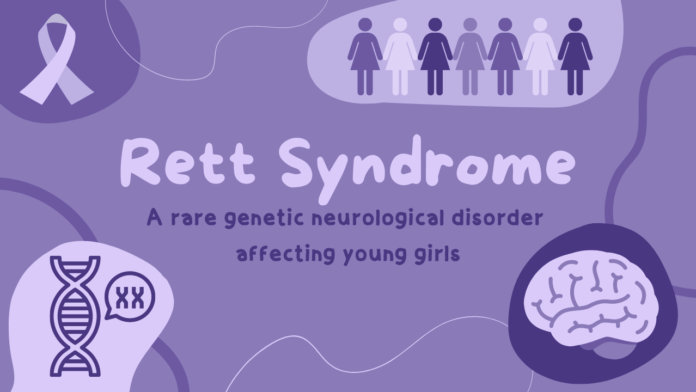Rett syndrome is a rare genetic neurological disorder that primarily affects females. It typically becomes apparent after 6 to 18 months of age and is characterized by a period of normal development followed by a loss of acquired skills, particularly motor and communication abilities.
Symptoms
The symptoms of Rett syndrome can vary, but they generally include:
- Early Onset: Normal early development followed by a period of slowed development or regression.
- Motor Skills: Loss of purposeful hand skills (such as grasping) and development of repetitive hand movements like wringing or clapping.
- Communication: Severe impairment in language and communication abilities, including loss of speech.
- Movement: Loss of motor skills such as walking and coordination problems (ataxia).
- Breathing: Breathing irregularities, including hyperventilation, breath-holding, and air swallowing.
- Other: Seizures, scoliosis, growth retardation, and gastrointestinal problems.
Causes
Rett syndrome is most commonly caused by mutations in the MECP2 gene located on the X chromosome. The MECP2 gene is crucial for brain development and function. While the disorder is usually not inherited, the mutation can occur spontaneously (de novo) in the affected individual.
Treatment
There is no cure for Rett syndrome, but treatment focuses on managing symptoms and improving quality of life. Treatment options include:
- Medications: To manage symptoms like seizures, breathing issues, and motor difficulties.
- Physical Therapy: To help maintain mobility and improve motor skills.
- Speech Therapy: To improve nonverbal communication skills.
- Occupational Therapy: To enhance daily living skills and adaptive behaviors.
- Nutritional Support: To address feeding difficulties and ensure proper nutrition.
- Behavioral Therapy: To manage behavioral issues and improve social skills.
Prevention
Since Rett syndrome is primarily caused by spontaneous genetic mutations, there are no known preventive measures. Genetic counseling may be helpful for families with a history of Rett syndrome to understand their risks.






























